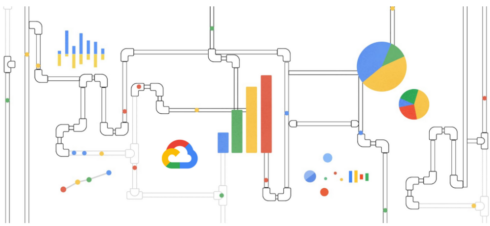
Google announced the general availability of Vertex Pipelines, which is a machine learning (ML) pipeline. Vertex Pipelines supports Kubeflow Pipelines (KFP) and TensorFlow Extended (TFX), two widely used open-source libraries, meaning users can define their pipeline using one of these libraries and run it on Vertex Pipelines.
In addition, Vertex Pipelines operates entirely server free. Users can upload and run their KFP or TFX pipelines and Vertex AI will handle provisioning and scaling the infrastructure to run the pipeline. With this, users will only pay for the resources used while the pipeline is running and the data scientists can focus solely on ML without worrying about infrastructure.
Vertex Pipelines also integrates with other tools in Vertex AI and Google Cloud. Users can import data from BigQuery, train models with Vertex AI, store pipeline artifacts in Cloud Storage, get model evaluation metrics, and deploy models to Vertex AI endpoints.
AudioEye releases issue reporting to help with accessibility issues
AudioEye announced issue reporting to help organizations continuously detect, track, and monitor accessibility issues on their websites. With this new feature, users gain access to a centralized dashboard view and real-time status updates, which makes it easier for businesses to keep their sites accessible to visitors with disabilities and complies with WCAG accessibility guidelines.
In addition, AudioEye issue reporting has a user-friendly interface and custom views. This makes it easier for non-technical users to understand the accessibility issues on their websites, drill into details, and resolve those issues quickly and without disruptions.
Crystal 1.2.2 now available
The Crystal Programming Language development team today announced the release of Crystal 1.2.2, the second patch release of the 1.2 series. In this release, there are 15 new PRs since the 1.2.1 release by five contributors. With this, the team has fixed three regressions in the compiler, two of them related to debug mode.
These fixes include
- Virtual metaclasses missed a type restriction 1since 1.2.0
- Debug locations were missing for some const and class var read calls
- And debug locations were missing for some union types
In addition, with this release, the team added support for binding against OpenSSL 3.0 and restored support for LibreSSL, which can both be used as alternatives to OpenSSL 1.x. It also added support for DWARF 5 when reading debug info for stack traces.
Habu raises $25 million in Series B Funding
Habu, maker of data clean room software, today announced that it has secured $25 million in Series B funding led by Wing Venture Capital. In addition, Snowflake Ventures, super{set}, Northwest Venture Partners, and Ridge Ventures joined the round. The new funding will allow the company to accelerate production innovation, operations, and customer success to support its client base and global expansion. With this financing round, the total funding raised is brought to $42 million, helping to extend Habu’s market lead.
Since the initial announcement of Habu’s Series A, the company has expanded its customer base, entered new markets, built scalable software, and recruited an experienced team.
The announcement comes on the heels of Habu’s partnership with Snowflake that integrates Habu’s Data Clean Room applications on the Snowflake Media Data Cloud to scale data collaboration for companies. This partnership allows for collaboration for Snowflake users without the movement of data.






